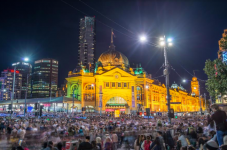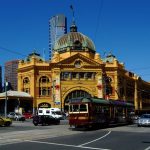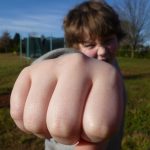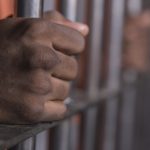‘African Youth Gangs’: The Dangers of Racialised Discourse

Over recent weeks, the mainstream media and Coalition politicians have made claims that gangs of Sudanese youths are responsible for a growing wave of street violence in Victoria.
The reports have contributed to the demonisation of the Sudanese community and triggered anger and moral panic across other parts of the community.
Political discourse
Prime Minister Malcolm Turnbull saw fit to use sensationalist media reports as a political tool, publicly stating that “growing gang violence and lawlessness in Victoria” is “a failure of the Andrews government”.
Meanwhile, federal health minister Greg Hunt has claimed these “groups” are “out of control”, and home affairs minister Peter Dutton said Victorians are too scared to go out for dinner due to the threat of “African gang violence.”
The implications of a crime epidemic are at odds with the fact that crime rates in Victoria have fallen recently – overall crime was down by 4.8% in 2017 and youth crime has declined by 12% over the last decade.
And while Sudanese youths are being blamed for a wave of “gang violence”, crime rates suggest they make up 1.5% of all offenders in the state.
Victoria police have publicly refuted claims of gang violence, reporting that although a number of Sudanese youths have been committing offences, they are not part of any “gang” and that their crimes are dwarfed by those of other sections of the community.
Moral panic
Anthony Kelly, the executive officer of Flemington and Kensington Community Legal Centre, argues that the racialised discourse of Australian politicians is dangerous and can lead to violence.
“When it becomes a racialised moral panic, then we start to see the things that lead toward Cronulla over 10 years ago,” Mr Kelly says. “That was instigated by the a very similar array of panics.”
Deputy police commissioner Shane Patton has also expressed concerns about racialised violence, pointing to a number of comments on Victoria Police’s Facebook page which call for attacks upon African youths.
“Stop running and start shooting,” one post stated. “Do your job send the charcoal children back to Africa,” said another.
A further post warned police not to “start sooking up when people take matters into their own hands to protect their own!” while another wrote, “vigilante gangs will happen to take back our communities”.
Fanning the flames
There have already been incidents of vigilantism, with one group even being presented by Channel 7 News as ‘patriots’ for threatening to carry out acts of vigilatism on Victorian streets.
One South-Sudanese man from Queensland blamed the prime minister and Mr Dutton for being racially abused in the wake of remarks by the politicians.
And a Daily Mail photographer triggered a confrontation in a Victorian shopping centre after taking close-up photographs of African teenagers innocently socialising.
The photographer later acknowledged that his actions had provoked the incident and apologised.
Racial profiling
A 2015 report on racial bias in Victoria police by Daniel Haile Michael and Maki Issa, who won a landmark racial profiling case against Victoria police, found that young people from countries such as South Sudan and Somalia were routinely stopped by police.
“A young African person who has committed no crime, who has done no wrong, is far more likely to be targeted and threatened and seen like a criminal by police and by shopkeepers,” Kelly said.
Many feel the demonisation of African youths will lead to their further stigmatisation and alienation, creating a self-fulfilling prophecy where many more start to rebel against a public that sees them as a problem.
Effect on policy
Helen Fatouros, the executive director of criminal law services at Victoria Legal Aid, says the pressure of ‘tough on crime’ media discourse has pushed the Andrews government towards a punitive approach.
The Andrews government committed $2 billion towards hiring 3,000 new police officers in December 2016 and $288 million towards building a new high security youth detention centre near Werribee.
The same government was found to have breached human rights laws for housing children in an adult prison, and has presided over the largest prison population in Victoria’s history.
“If we react in fear as a community based on distorted messaging in some of the popular debate, we will disrupt a whole lot of reform that is already under way, and that will necessarily take time to address entrenched, underlying socioeconomic disadvantage,” Fatouros explains.
It seems Sudanese youths are the latest group to be demonised by politicians and the mainstream media, following Greek ‘gangs’ in the 1980s, Vietnamese ‘gangs’ in the 1990s and ‘middle eastern gangs in the early 2000s.






